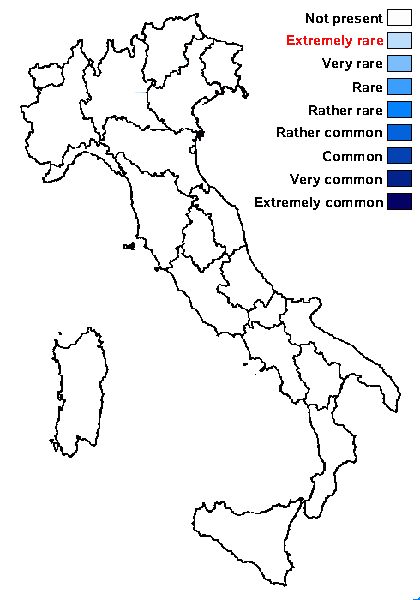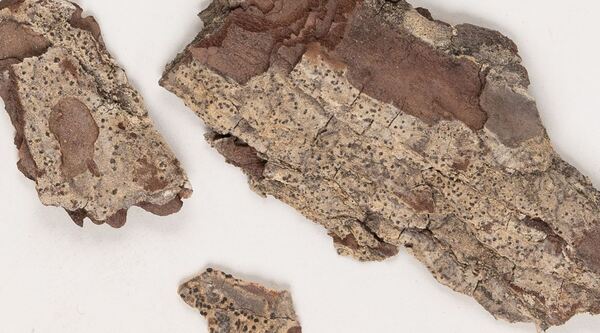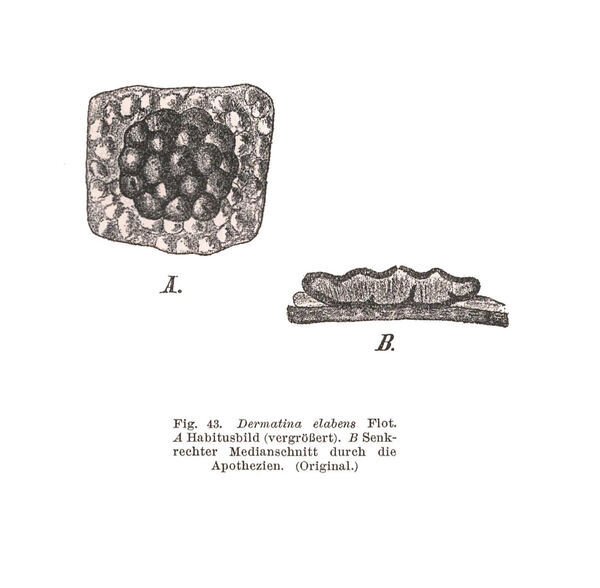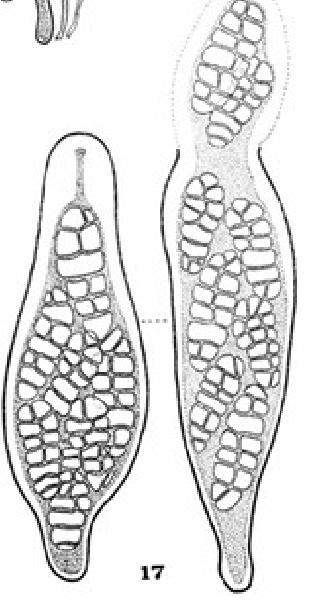Mycoporum elabens (A. Massal.) Flot. ex Nyl.
Act. Soc. linn. Bordeaux 21, 4: 417, 1857 (1856). Basionym: Rhizocarpon elabens A. Massal. - Ric. Auton. Lich. Crost.: 103, 1852
Synonyms:
Distribution:
Description: Thallus crustose, thinly episubstratic, granulose, yellowish white, doubtfully lichenized. Ascocarps perithecioid, immersed into up to 1.2 mm wide, black, stromatoid pseudothecia delimited by a dark-pigmented pseudoparenchymatous layer, opening through a small pore. Hamathecium of irregularly branched and anastomosing filaments resembling pseudoparaphyses but deriving from the stromatal tissue; hymenial gel I+ red. Asci 8-spored, obpyriform to obclavate, bitunicate, the wall much thickened in the upper part, with a distinct tholus, not amyloid. Ascospores submuriform, with up to 8 transverse septa and 1 longitudinal septum, hyaline to finally brown, narrowly ellipsoid, 22-40 x 8-12 μm, halonate only when young. Pycnidia black, globose, the wall dark-pigmented. Conidia hyaline, ellipsoid to bacilliform. Photobiont absent, but trentepohlioid algae often present around the perithecia. Spot tests: K-, C-, KC-, P- UV-. Chemistry: without lichen substances. Note: a rare lichen found on the bark of conifers (Pinus, Abies); in Europe, sterile material was probably overlooked, and most records are historical; recorded from a few localities of the Alps (Switzerland, Austria), but apparently declining. To be looked for in Italy.
Growth form: Crustose
Substrata: bark
Photobiont: Trentepohlia
Reproductive strategy: mainly sexual

Predictive model
Growth form: Crustose
Substrata: bark
Photobiont: Trentepohlia
Reproductive strategy: mainly sexual

Predictive model
 INDEX FUNGORUM
INDEX FUNGORUM
 GBIF
GBIF




